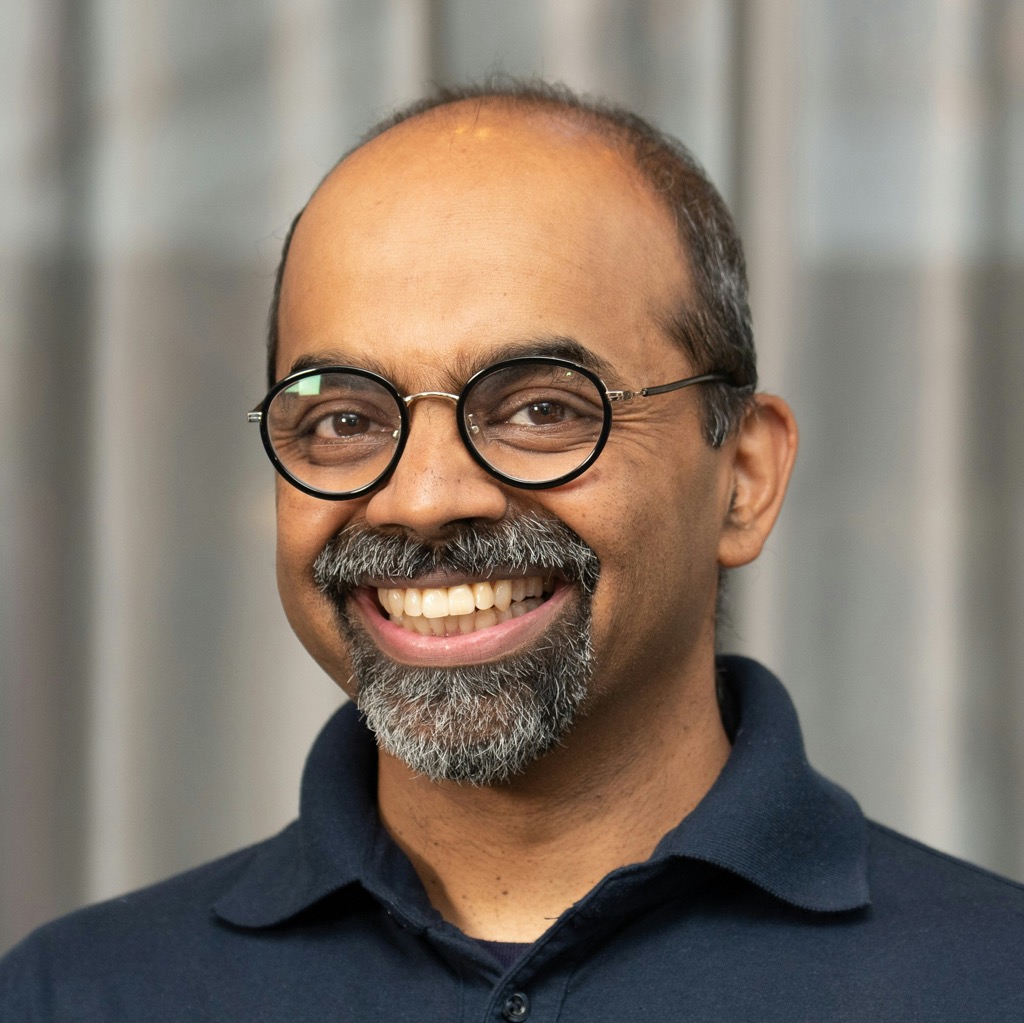Program
Keynote Speaker

L Mahadevan, FRS
de Valpine Professor of Applied Mathematics, Professor of Organismic and Evolutionary Biology, Professor of Physics, Faculty Dean, Mather House,Harvard University
L. Mahadevan is the Lola England de Valpine Professor of Applied Mathematics, Physics, and Organismic and Evolutionary Biology at Harvard University, where he also serves as a Faculty Dean of Mather House, living and learning with a community of 400+ students. Following a PhD from Stanford in 1995, he was on the faculty at MIT and then a Fellow of Trinity and the inaugural Schlumberger Professor of Complex Physical Systems at Cambridge University before moving to Harvard in 2003. His interests are broadly in the study of phenomena at the human scale that are easy to observe, yet not always easy to explain. A common aim is to get at a qualitative understanding using quantitative methods, and get at general principles, if there be such, from answers to specific questions inspired by the patterns of shape and flow of inanimate matter on scales ranging from the supramolecular to the planetary, and the dynamics of sentient living matter that can self-organize, perceive and act. Examples include the mathematics underlying art forms such as origami and its cousins, the physics underlying unusual musical instruments such as the steel pan and the musical saw, the biophysics of cells and tissues and the basis for self-organized morphogenesis, and the functional ethology and behavior of super-organisms from bacteria to bugs. His work in science has been recognized by a number of awards: he is a MacArthur Fellow, a Fellow of the Royal Society of London, a member of the American Academy of Arts and Sciences and a Simons Investigator.
(Bio)physics of body building: gastrulation, elongation, segmentation, ...
I will describe how simple geometrical ideas and physical principles associated with active growth and flow are beginning to help illuminate multicellular tissue morphogenesis in laying out the body plan, using three common motifs, with variations across organisms: gastrulation, elongation, and segmentation. Combining experiments and theory allows us to link molecular genetics to morphogenesis in a developing organism and construct evolutionary phase diagrams across organisms, sharpening the Darwinian question of how “endless forms most beautiful and most wonderful have been, and are being, evolved.”
19th IZFC Agenda
*Subject to change. Updated February 19, 2025
| Wednesday 7/9 | Thursday 7/10 | Friday 7/11 | Saturday 7/12 | Sunday 7/13 | |
| Day 1 | Day 2 | Day 3 | Day 4 | Day 5 | |
| 8:00 | |||||
| 8:30 - 10:00 Plenary Session |
8:30 - 10:00 Plenary Session |
8:30 - 10:00 Plenary Session |
8:30 - 10:00 Plenary Session |
||
| 9:00 | |||||
| 10:00 | Coffee Break | Coffee Break | Coffee Break | Coffee Break | |
| 10:30 - 12:00 Concurrent |
10:30 - 12:00 Concurrent |
10:30 - 12:00 Concurrent |
10:30 - 12:00 Concurrent |
||
| 11:00 | |||||
| 12:00 | 12:00 - 1:00 Lunch |
12:00 - 1:00 Lunch |
12:00 - 1:00 Lunch |
12:00 - 12:30 Closing Remarks |
|
| 1:00 | 1:00 - 2:30 Session |
1:00 - 2:30 Session |
1:00 - 1:30 Regional Meetings |
||
| 1:30 - 2:30 ZF Community Meeting |
|||||
| 2:00 | |||||
| 2:30 - 3:15 CNV Award Lecture |
2:30 - 3:15 Streisinger Award Lecture |
2:30 -3:00pm CBC Award Lecture |
|||
| 3:00 | 3:00 - 5:00 Poster Session |
||||
| 3:45 - 5:00 Opening Remarks Keynote Lecture |
3:15 - 4:00 Break |
3:15 - 4:00 Break |
|||
| 4:00 | 4:00 - 5:30 Workshops |
4:00 - 5:30 Workshops |
|||
| 5:00 | 5:00 - 6:30 Plenary |
5:00 - 6:00 Keynote Lecture |
|||
| 5:30- 6:30 Dinner |
5:30- 6:30 Dinner |
||||
| 6:00 | Travel to banquet | ||||
| 6:30 - 8:00 Opening Reception |
6:30 - 9:00 Banquet |
||||
| 7:00 | 7:00 - 9:00 Poster Session |
7:00 - 9:00 Poster Session |
|||
| 8:00 | |||||
| 9:00 | |||||

